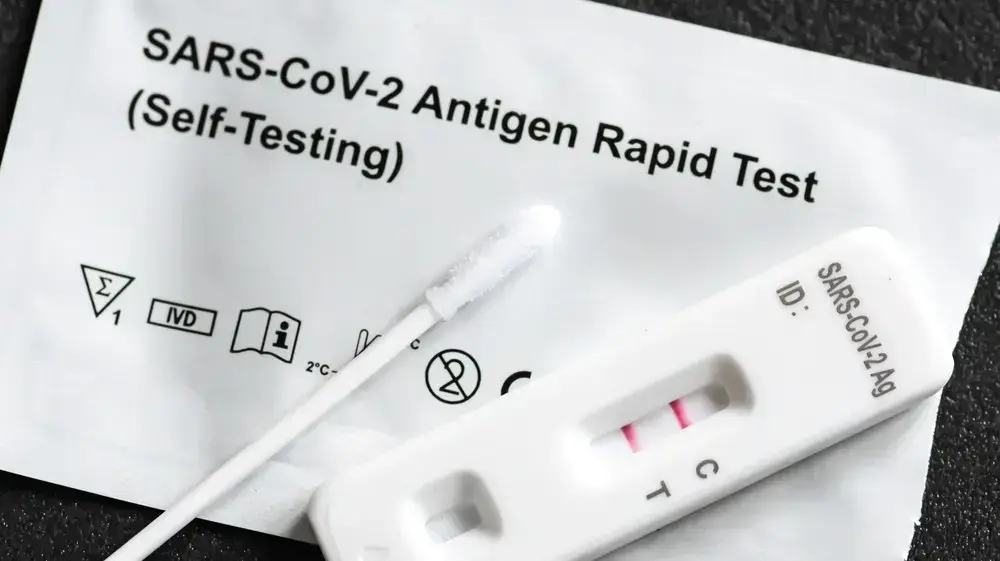Every day, Le Parisien mobilizes to answer your questions around the coronavirus. Today we are interested in Marie's questioning, who wonders if swimming can be risky in times of pandemic.
As summer approaches and hundreds of beaches have already reopened in France, the question inevitably arises for many holidaymakers. Concerns may also have arisen after the discovery in April of "tiny traces" of the virus in the non-potable water network in Paris. While studies on the transmission of Covid-19 in water are still in progress, initial results are already making it possible to see a little more clearly. As a reminder, regardless of the location, all swimming must be done in accordance with the distance measures.
At sea, an "extremely low" risk
First observation: no trace of the SARS-CoV-2 virus was detected in seawater and shellfish samples taken from the different coastlines by the French Research Institute for Exploitation of the Sea ( Ifremer) from Nantes (Loire-Atlantique). This group of scientists analyzed four samples of marine water and some twenty samples of oysters and mussels collected last April. The study does not, however, constitute certainty for all shellfish and metropolitan marine waters, "the Institute cautiously points out. Other analyzes will continue over several months to monitor the potential circulation of the Covid-19.
The absence of the virus in these samples is reassuring, even if "zero risk does not exist", said Fabienne El-Khoury, researcher at Inserm within the research team in epidemiology. “The presence of faeces in the sea or in the ocean could constitute a risk because the virus can be rejected in the faeces. But no proven case of contamination was identified after a swim. This is not surprising since the dilution (very important in the sea) and the salt reduce the viral load. The probability of contracting the virus when swimming at sea is therefore possible, but extremely low, ”assures the researcher.
"No risk" in swimming pools
If the risk is already very low at sea, it would be even lower in chlorinated water. The High Council for Public Health (HCSP) specifies in an opinion delivered on April 24, that "no study concerning the survival of SARS-CoV-2 in swimming pool water is currently available", adding that "swimming pool water does not seem to be a suitable place for the survival and development of viruses". "The chlorine present in water will effectively kill viruses and bacteria," confirms Fabienne El-Khoury. If it is properly disinfected, then there will be no risk. "
However, reopening the pools would "not necessarily be a good idea," said the specialist. “The danger does not come from water, but from the concentration of people in a small enclosed space. Like everywhere else, someone who sneezes or coughs next to you at the pool can obviously contaminate you, ”she notes.
Referring to a possible reopening of the pools, the High Council for Public Health has already insisted on respecting "minimum physical distance and the behavioral rules of bathers (cap, showers, footbaths, absence of digestive disorders)" to avoid any risk of contamination.
“Avoid” lakes or ponds
Vacationers should be more careful about small natural pools. “It is better to avoid lakes or ponds, because they are untreated water and their surface is much smaller. The dilution of the virus is then less important in these basins ”, explains the specialist.
An opinion shared by the Spanish Higher Council for Scientific Research (CSIC). The organization estimated, in a May 5 opinion, that the chances of "survival of SARS-CoV-2 in untreated water [...] may be greater" than that in treated or salted water.
Newsletter - Essential news
Every morning, the news seen by Le ParisienI'm registering
Your email address is collected by Le Parisien to allow you to receive our news and commercial offers. Find out more
Scientists therefore call to "avoid crowds" and advise against swimming in lakes, rivers and small freshwater basins where "dilution is less effective".
You can ask us all your questions about the coronavirus by filling out our form or directly at the address coronavirus@leparisien.fr. Find all the answers previously published on our dedicated page.
VIDEO. The beaches of La Baule and Pornichet reopen to the public







